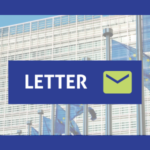CAN Europe and ETUC sent the following letter to the Slovakian Minister Solymos and Vice-President Šefcovic ahead of the Informal Environment Council on 12-13 July 2016, where the chemical industry is the only stakeholder invited to address the meeting of ministers, while representatives from civil society are not.
Dear Minister Sólymos,
Dear Vice-President Šefcovic,
The outcome of the Brexit referendum clearly challenged European decision-makers to give more attention to the needs and expectations of ordinary European citizens. Europeans still believe and adhere to the values of the EU, including openness, solidarity and the desire to make our planet a better place to live in. Now more than ever, it is crucial for our leaders to show they remain willing and able to act for the benefit of its citizens.
As representatives of civil society organisations and trade unions from all over Europe, we expect governments to listen to these messages and to commit to ensuring that the transition we are facing will be a just transition and a sustainable transition. Only then will European citizens be convinced that Europe has a vision that will bring benefits for all, and for the planet.
Our environment and energy ministers seemingly have not yet understood this message. At an informal meeting taking place this Tuesday in Bratislava, ministers will be discussing “EU’s Climate and Energy objectives”. It comes as a surprise to us and the many millions of citizens we represent that the chemical industry is the only stakeholder invited to address the meeting of ministers, while representatives from civil society are not. Instead of hearing the message that citizens are fed up with a political system where only the interests of big industry are being listened too, EU environment and Energy ministers actually confirm this image and indeed only invite those representing corporate interests while ignoring those who represent the interests of ordinary people.
Even though we acknowledge that industry organisations should have their say in that important discussion, we deplore the very narrow perspective which has been chosen to draft the agenda of the informal council. What is at stake in EU’s Climate and energy policy instruments is not only “competitiveness”, but the contribution of the EU to save the planet pursuant to what countries committed to in Paris. What is at stake is to protect public health in a Europe where more than 400 000 people die every year because of poor air quality. What is at stake is also how to deal with the impact decarbonisation may have on the labour market and how to tap the job potential of the transition towards a zero-carbon economy. What is at stake is how to make a better Europe for the people and for the environment. All these questions cannot be left to big industry.
The EU needs to embark on an agenda of transformational change, one that puts the interests of people and planet first in everything that it does, guided by the global 2030 Agenda for Sustainable Development and the Paris climate deal. Such an inspirational and transformational agenda should be given shape through a change in political emphasis and direction, supported by improved accountability of the EU institutions.
For many years, our organisations have been very active on these issues and, despite the wide diversity of our members, we have been able to build common positions and to put forward credible policy proposals. We stand ready to contribute to policies which put the people and the planet first! If political leaders do not want to talk to us, they will have more and more to deal with populists and all those who play with fear and anger.
We look forward to hearing from you, sincerely yours,
Montserrat Mir, ETUC Confederal Secretary Director
Wendel Trio, Climate Action Network Europe


